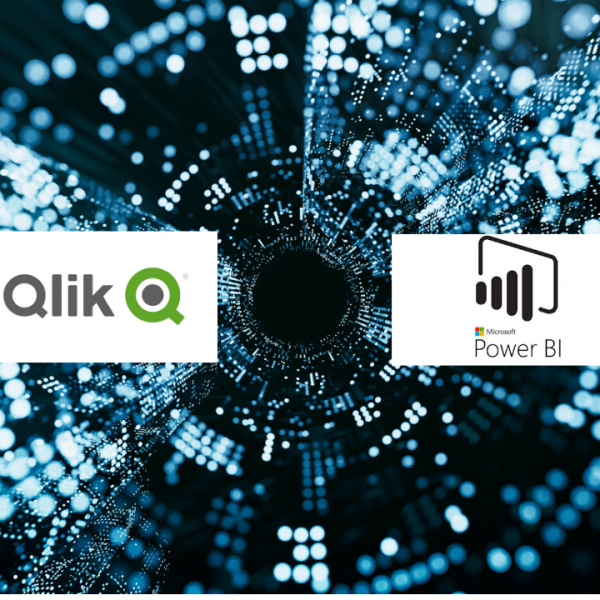Qlik Sense vs Power BI



Data has been called the oil of the digital revolution and – like its underground equivalent – how you access it is all important. Given this, having powerful, accessible data analytics tools to hand is critical. And with Tableau now owned by Salesforce and Looker recently acquired by Google, it's a competitive field – two products at the forefront of the field, though, are Qlik and Power BI.


Qlik pitches itself as providing the only end-to-end data integration and analytics product designed for the entire business. Power BI meanwhile, reports that it will enable organisations to create a data-driven culture, allowing individuals at every level of the business to make decisions based on up-to-the-minute analytics.
By and large, though, Qlik Sense is seen as the stronger product, offering more depth and functionality than Power BI, as well as better delivery and performance at a broad level. Indeed, when reviewing factors such as data extraction and manipulation, and filtering and search, Qlik Sense is generally judged to be the winner; and the product makes it easy to customize dashboards and to move data in and out of the system.
Qlik is particularly focused on accessibility and providing tools to enable non-experts to access data (thereby reaching out to a much wider market of potential users). New language processing capabilities, for example, allow users to search with natural language, making it fast and simple for non-specialists to find and manipulate data; while the product's Smart Search feature surfaces insights and suggests connections.
One of the core benefits of Power BI, on the other hand, is that it sits within Microsoft's product ecosystem. The product offers a scalable, enterprise-grade solution with built-in AI capabilities, but perhaps its biggest selling point is its integration with the Microsoft Power Platform (including the Power Apps, Power Automate and Power Virtual Agents platforms) as win AI caell as with the Office 365 suite and with Azure.
Furthermore, Gartner cites Microsoft as the Magic Quadrant Leader for the sector with “a comprehensive product vision, positive sales experience and intuitive user experience”. Power BI is also touted as being slightly better than Qlik Sense when it comes to data discovery and visualisations; and while it might not be quite as easy to use as the other platform, it shouldn't be too much of a stretch for those familiar with other Microsoft products.


And while Qlik Sense is a leader in the UK, Power BI has a strong presence in Western Europe. Some of Power BI's users in the Netherlands, for example, include major organisations such as Dutch Railways, UNICEF Netherlands and Eneco Groep.
What's more, Power BI Pro is definitely the winner when it comes to subscription cost – which can be all-important, both for small organisations with tight margins and for larger businesses looking at hundreds of accounts. The product costs in the region of $9.99 per user per month, while Qlik Sense Business costs significantly more for an equivalent offering at $30. For many businesses comparing the two products, which are tightly matched in many respects, this may be a decisive factor.
To add to this, Qlik is the final stages of stopping its freemium programme – which may well give the impetus to a cohort of price-aware customers to shift to another product with a lower starting cost.
Because of this, while Qlik Sense may come with greater firepower, Power BI Pro is likely the winner for the growing market in the Netherlands and its neighbours, where price sensitivity is high and costing is critical. As the commercial userbase matures, the business intelligence landscape will certainly evolve – and things may well change. For now, though, it seems like Power BI will only grow in popularity in the Benelux region.
Enquire NowSimply provide us your contact details and we will be in touch |
Empiric is a dynamic technology and transformation recruitment agency specialising in data, digital, cloud, security and transformation. We supply technology and change recruitment services to businesses looking for both contract and permanent professionals.
Empiric are committed to changing the gender and diversity imbalance within the technology sector. In addition to Next Tech Girls we proactively target skilled professionals from minority groups which in turn can help you meet your own diversity commitments. Our active investment within the tech community allows us to engage with specific talent pools and deliver a short list of relevant and diverse candidates. For more information contact 02036757777 To view our latest job opportunities click here. |